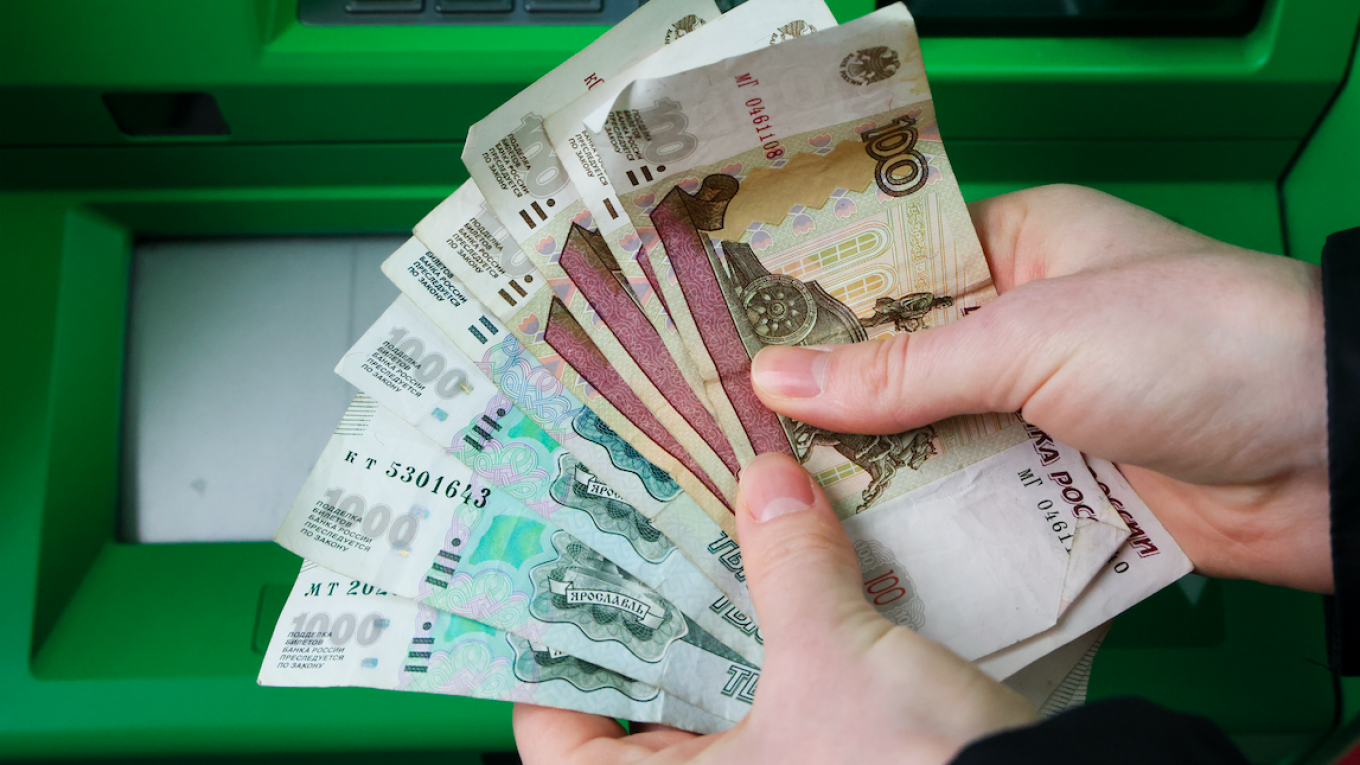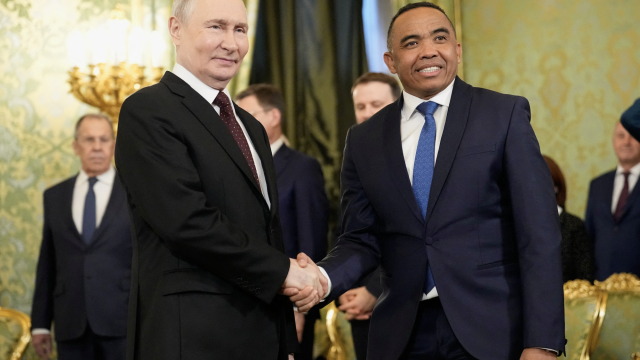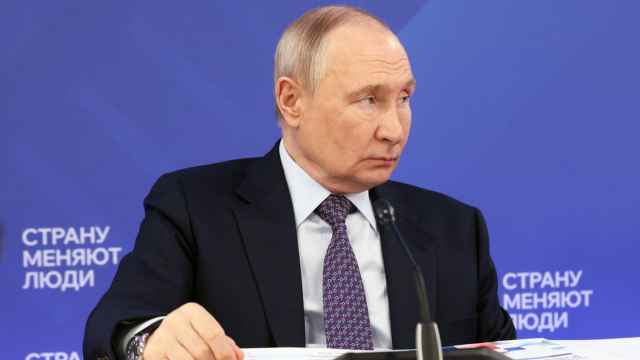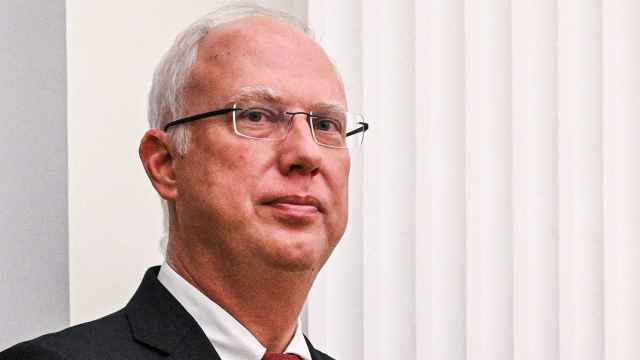Russians flocked to cash machines and exchange points across major cities Monday as the country stood on the brink of an economic crisis.
The Russian ruble dropped by an unprecedented 20% in early morning trade in response to the imposition of tough Western sanctions over the weekend, forcing Russia’s Central Bank to double interest rates and compel companies to start selling their hard currency earnings.
But Russian consumers did not wait to see if the emergency measures were working, voting with their feet in a bid to protect their savings from a plunging currency.
Lengthy queues at cashpoints offering dollars and euros formed in Moscow and St. Petersburg, according to images shared widely on social media. Despite the ruble seeming to settle at around 95 against the U.S. dollar in afternoon trading on financial markets, most high-street banks were selling the greenback for well over 100 rubles — hiking their spreads to protect against volatility.
Shoppers also reported that retailers had already started raising prices for electronics, household appliances and other expensive goods. Retailers in Moscow reported being sold out of the likes of Apple iPhones and Macbooks by Sunday evening, as residents sought to offload their cash before markets opened on Monday.
Eight automakers announced Monday they were raising their recommended selling prices to dealers in Russia in response to the currency crisis, the RBC business site reported. Meanwhile, online shops temporarily stopped selling some expensive goods while they waited to recalculate prices.
Economists have warned that Russia could be facing its most serious economic crisis since the early 1990s, when the fall of the Soviet Union plunged the country into deep recession.
“All measures by the Central Bank are aimed at calming domestic depositors,” Elina Ribakova, a sanctions expert and deputy chief economist at the Institute of International Finance said on Monday in response to the government’s emergency measures.
“An inflationary shock is inevitable, so raising interest rates is first of all designed to encourage Russians to keep their savings in rubles and in the Russian banking systems,” said Renaissance Capital economist Sofya Donets.
The government is trying to quell nervousness among Russians over how safe their deposits are in banks — fearful consumer panic could accentuate an already looming crisis. The Central Bank has pledged to offer banks unlimited cash to meet the heightened demand for withdrawals and the government has also pointed to its deposit insurance scheme.
On the markets, at least, economists say the measures have worked. Whether it is enough to convince Russians remains to be seen.
“The ruble appears to have stabilized for now, but this is still very early days. More hikes and further measures are likely to be needed,” Ribakova said.
A Message from The Moscow Times:
Dear readers,
We are facing unprecedented challenges. Russia's Prosecutor General's Office has designated The Moscow Times as an "undesirable" organization, criminalizing our work and putting our staff at risk of prosecution. This follows our earlier unjust labeling as a "foreign agent."
These actions are direct attempts to silence independent journalism in Russia. The authorities claim our work "discredits the decisions of the Russian leadership." We see things differently: we strive to provide accurate, unbiased reporting on Russia.
We, the journalists of The Moscow Times, refuse to be silenced. But to continue our work, we need your help.
Your support, no matter how small, makes a world of difference. If you can, please support us monthly starting from just $2. It's quick to set up, and every contribution makes a significant impact.
By supporting The Moscow Times, you're defending open, independent journalism in the face of repression. Thank you for standing with us.
Remind me later.






